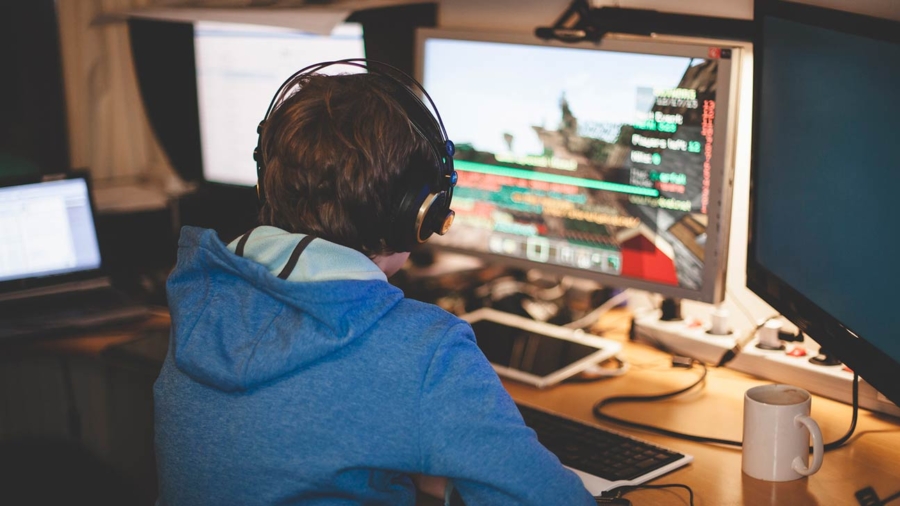An analysis of two dozen studies found a link between playing violent video games and aggressive behavior.
While previous studies have demonstrated violent video games boost aggressive tendencies in thoughts and feelings, the new analysis showed a link with physical aggression. The effect on players was “modest,” noted the analysis published Oct. 1.
The Dartmouth College researchers, professors James Sargent and Jay Hull, and senior analyst Anna Prescott, looked at 24 studies that together tracked more than 17,000 people for as short as three months to as long as over four years. The average age of the people studied varied, from 9 to 19.
All the studies measured changes in physical aggression at multiple points in time.
“We conclude that playing violent video games is associated with greater levels of overt physical aggression over time, after accounting for prior aggression,” the authors stated.
The authors noted there’s been skepticism over the effect of violent video games on real-life behavior. Previous studies revealed that violent video games make people think and feel more hostile, emotionally numb, and less emphatic.
The authors thus focused on studies that looked for “real-world aggressive behavior,” based on self-reports by the participants as well as information from parents, teachers, or peers.
“Reports using hypothetical scenarios and reports restricted to verbal aggression were not considered acceptable measures,” the authors stated.
The analysis “yielded a modest effect size,” they said.
That was, however, an overstatement, according to Christopher Ferguson, a psychology professor at Stetson University.
“The analyses showed that knowing about a person’s video game playing habits would predict aggression about 0.5 percent better than a coin toss,” he told The Epoch Times via email.
He also warned the results could have been affected by how the studies were conducted.
“If you ask people: ‘Do you play violent video games? Oh, by the way, how many fights do you get into?’ The answers will tend to drift toward each other a little bit,” he said in a phone call.
Ferguson authored and co-authored a number of articles arguing negligible or no impact of video games on real-life violent and criminal behavior.
Culture Matters
Participants in the individual studies came from Austria, Canada, Germany, Japan, Malaysia, the Netherlands, Singapore, and the United States.
The analysis revealed that players of different ethnicities faced different impact. White players saw about 50 percent larger impact than Asian players, while the games seemed to have a negligible effect on Hispanic players.
The authors warned, though, that the studies only looked at a total of 1,052 Hispanics, making the sample too small to make definitive claims.
“The question remains as to why ethnicity might moderate the influence of violent video games on aggressive behavior,” the researchers stated.
One previous study, they wrote, “found that culture moderated the impact of violent video game play on desensitization to violence and empathy such that participants from Western cultures showed greater desensitization and larger decreases in empathy than those from Eastern cultures.”
They theorized that perhaps a culture’s focus on empathy may be the deciding factor, though they acknowledged such a claim would need further research.
“We hope these findings will assist the field in moving past the question of whether violent video games increase aggressive behavior, and toward questions regarding why, when, and for whom they have such effects,” the authors said.
Sargent didn’t respond to a request for a comment.
From The Epoch Times


